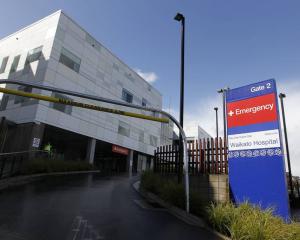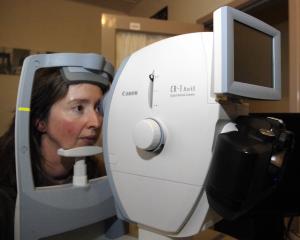
The board was the first in the South Island to appoint a nurse practitioner when Bernadette Forde was given the role in 2004 of working with adults with a dual diagnosis of an intellectual disability and a major mental illness.
The second appointment, in 2007, was that of Liz Langer, a nurse practitioner from Wisconsin with 20 years' experience specialising in the psychiatric care of the elderly.
Both nurse practitioners, who undertake much of their work in the community, have been successful in reducing the number of admissions to hospital while also providing education to health services and other health professionals in their areas of expertise.
In her role, Ms Langer has been able to undertake early assessments of patients and organise help to allow them to stay in their homes longer or to prevent them going from rest-home to hospital-level care.
Board nurse director of mental health and also the board's designated nurse practitioner "champion" Heather Casey said the key to successful practice for a nurse practitioner was teamwork involving all those who might contribute to the care of a patient such as district nurses, general practitioners and specialists.
Specialists working with Ms Langer and Ms Forde had been supportive of the new roles, working closely with the pair.
Nurse practitioners have only been registered in New Zealand since 2001, although they have been practising in the United States for about 40 years.
They must meet standards relating to their education and experience through a special registration process and, once qualified, may be allowed to prescribe some medicines and order laboratory tests in a particular area of expertise.
Ms Langer and Ms Forde are among the 30 practitioners who have been granted prescribing rights.
Standards for registration are rigorous and Ms Casey said it was estimated only about 6% of nurses nationally would likely choose the profession.
Nursing Council of New Zealand statistics show that most nurse practitioners are home-grown, with 30% of the 50 practitioners registered coming from overseas.
Mental health and community services group manager Elaine Chisnall said she was in the process of undertaking a formal evaluation of the role and whether nurse practitioners would be desirable in other services.
Aged care, wound care and pain management were areas which might be considered.
Ms Casey said a strategy would be developed this year, in conjunction with the board's planning and funding team, to see how new roles could be developed.
Boards needed to "grow their own" nurse practitioners rather than rely on a supply of practitioners from overseas and it was a matter of finding nurses interested in the positions and supporting and mentoring them while they undertook the extra study.
Mrs Chisnall said with an increasingly ageing population and the expected prevalence of physical impairment and chronic conditions, it was expected the emphasis on care would be around nursing and allied health care rather than on specialist medical care and planning needed to take account of that.
Nurse practitioners
• 50 registered in New Zealand, most working in North Island.30 authorised to prescribe some medicines.
• Have roles in 21 different areas of nursing, including diabetes, paediatrics, adult palliative care, ophthalmology and urology.
• Two registered in two areas of expertise.
• The highest number in any one area of nursing is 15 in primary health care, followed by neonatal care (7), adult cardiac care (4), wound care (3) and respiratory nursing (3).
• Two employed in each of the following: care of the elderly, emergency nursing, high dependency nursing, mental health.
• Three employed in Otago - two by the Otago District Health Board and one specialising in primary health care working in the community.
• Only six registered in South Island.











